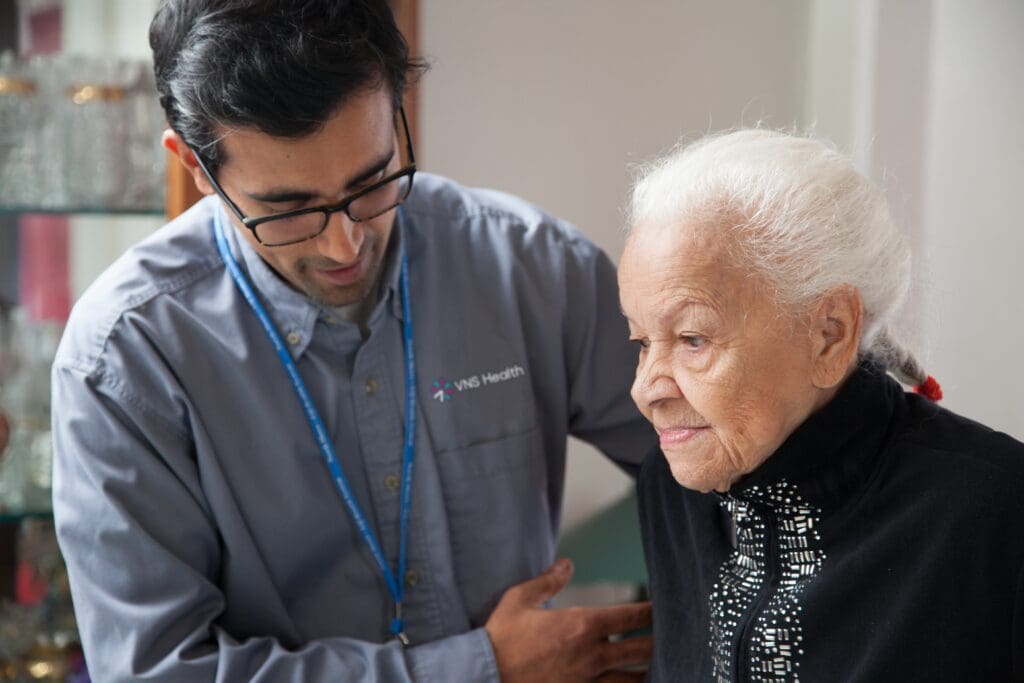Finding the Right Charlotte Care Home: An Overview to Picking the very best Environment
Finding the Right Charlotte Care Home: An Overview to Picking the very best Environment
Blog Article
Efficient Mental Deterioration Care Methods for a Better High Quality of Life
In the world of mental deterioration care, the application of efficient methods is vital for boosting the top quality of life for both people impacted by the condition and their caregivers. Understanding the unique phases of mental deterioration allows for customized interventions that attend to the evolving requirements of people-- from advertising cognitive engagement in the early phases to ensuring self-respect in late-stage care.
Recognizing Dementia Stages

In the beginning, individuals may experience light memory loss and problem with acquainted tasks. Care approaches must concentrate on keeping freedom and offering cognitive stimulation. The middle stage is defined by raised complication, difficulty acknowledging enjoyed ones, and damaged judgment. Throughout this phase, caretakers should execute organized regimens and ensure a risk-free setting. In the late phase, individuals may shed the capacity to require and communicate assistance with daily tasks. Here, thoughtful care is necessary, emphasizing convenience and dignity.
Identifying these stages permits caregivers to adapt their approaches and give support that straightens with the individual's present needs, eventually helping with better administration of the condition and boosting the overall caregiving experience. Recognizing dementia stages is for that reason a foundational facet of effective dementia treatment.
Interaction Techniques
Reliable communication is an important part of mental deterioration care, especially as the condition progresses with its various phases. As cognitive abilities decline, it becomes vital to adjust interaction strategies to fulfill the demands of people with dementia. Using clear, straightforward language is essential; caregivers should avoid complicated sentences and jargon, deciding instead for straightforward, concise expressions.
Non-verbal interaction plays a similarly substantial role. Faces, gestures, and tone of voice can communicate heat and understanding, often enhancing spoken messages. Preserving eye call and an open posture cultivates a sense of connection and safety and security, urging individuals with mental deterioration to engage more completely in discussions.
It is also useful to be individual and allow ample time for responses. Individuals may call for additional time to process details and formulate their ideas. Duplicating or rephrasing inquiries might be essential if comprehension appears doing not have.
Lastly, focusing on the person's passions and personal background can facilitate much more purposeful communications. Participating in acquainted topics can evoke positive memories and feelings, further enhancing the communication experience (charlotte care home). By employing these techniques, caretakers can substantially boost the quality of communications, advertising dignity and regard for individuals living with dementia
Creating a Safe Environment
Producing a risk-free setting for individuals with dementia is vital to promoting their well-being and independence. A well-designed room can dramatically minimize the risks of mishaps and boost the high quality of life for those influenced by this problem. Secret considerations include lessening mess and guaranteeing clear paths to promote mobility. Eliminating or protecting prospective threats, such as loose carpets, sharp things, or hazardous compounds, is vital in preventing falls and injuries.
Lighting plays a vital duty too; using natural light any place feasible and incorporating night lights can assist individuals browse their surroundings safely. Additionally, identifying rooms and important objects can assist memory and alignment, reducing complication and anxiety.
It is likewise essential to produce an acquainted atmosphere by personalizing the space with photographs or valued items, which can evoke positive memories and a sense of belonging.
Including furnishings that is both comfy and functional contributes to an encouraging environment, permitting individuals to take part in day-to-day activities effortlessly. Eventually, a safe environment not just safeguards against physical risks however also promotes a sense of safety, which is important for the psychological wellness of those living with dementia.
Engaging Regimens and tasks
Involving activities and organized regimens are essential elements in the treatment of people with dementia, as they promote cognitive feature, emotional stability, and social communication. These activities should be tailored to the person's interests, capacities, and stage of cognitive decline. dementia care charlotte. Straightforward, repeated jobs such as gardening, arts and crafts, or over at this website cooking can provide meaningful interaction, allowing individuals to utilize their abilities while promoting a feeling of achievement
Developing an everyday routine helps create a foreseeable environment, which can decrease anxiety and confusion. This framework can include assigned times for dishes, activities, and rest, ensuring a balanced approach to day-to-day live. Including social interactions into these regimens, such as group tasks or visiting family members, further improves psychological well-being and fights sensations of seclusion.
Furthermore, exercises, such as strolling or dancing, not just promote physical wellness yet also stimulate psychological engagement. Encouraging involvement in area events or support system can give additional possibilities for socializing. In general, the combination of organized routines and interesting tasks is necessary in enhancing the lifestyle for individuals with dementia, promoting freedom and dignity while addressing their distinct requirements.
Sustaining Caregiver Wellness
Taking care of people with mental deterioration can be a requiring and emotionally tiring experience, making it important to prioritize the wellness of caregivers. Caretakers typically encounter high degrees of tension, stress and anxiety, and physical fatigue, which can result in fatigue otherwise attended to suitably. To sustain their wellness, it is vital to execute a multifaceted approach.
First, supplying caregivers with access to education Get the facts and learning and resources can empower them with methods to take care of daily obstacles. Support groups, both in-person and online, provide a platform for sharing experiences, fostering a feeling of community, and decreasing feelings of isolation. Furthermore, reprieve treatment solutions make it possible for caregivers to take needed breaks, permitting them time to attend and charge to their very own health demands.
In addition, urging caregivers to participate in self-care techniques-- such as normal workout, healthy consuming, and mindfulness-- can dramatically boost their resilience. Promoting open interaction concerning their sensations and challenges with relative or professionals additionally aids relieve emotional problems.
Final Thought
Finally, effective dementia care strategies incorporate an extensive understanding of the disease's stages, the application of clear important link communication methods, the facility of a safe atmosphere, and the promotion of organized routines and engaging activities. Furthermore, focusing on the wellness of caregivers is important to maintaining top quality care. By integrating these approaches, the total top quality of life for individuals with mental deterioration can be considerably improved, cultivating a helpful environment that advertises dignity and psychological health.
In the world of dementia treatment, the application of efficient methods is important for improving the quality of life for both individuals affected by the condition and their caretakers. By utilizing these methods, caretakers can significantly improve the top quality of communications, promoting self-respect and regard for individuals living with mental deterioration.

Caring for people with dementia can be a demanding and mentally tiring experience, making it imperative to prioritize the wellness of caretakers.
Report this page